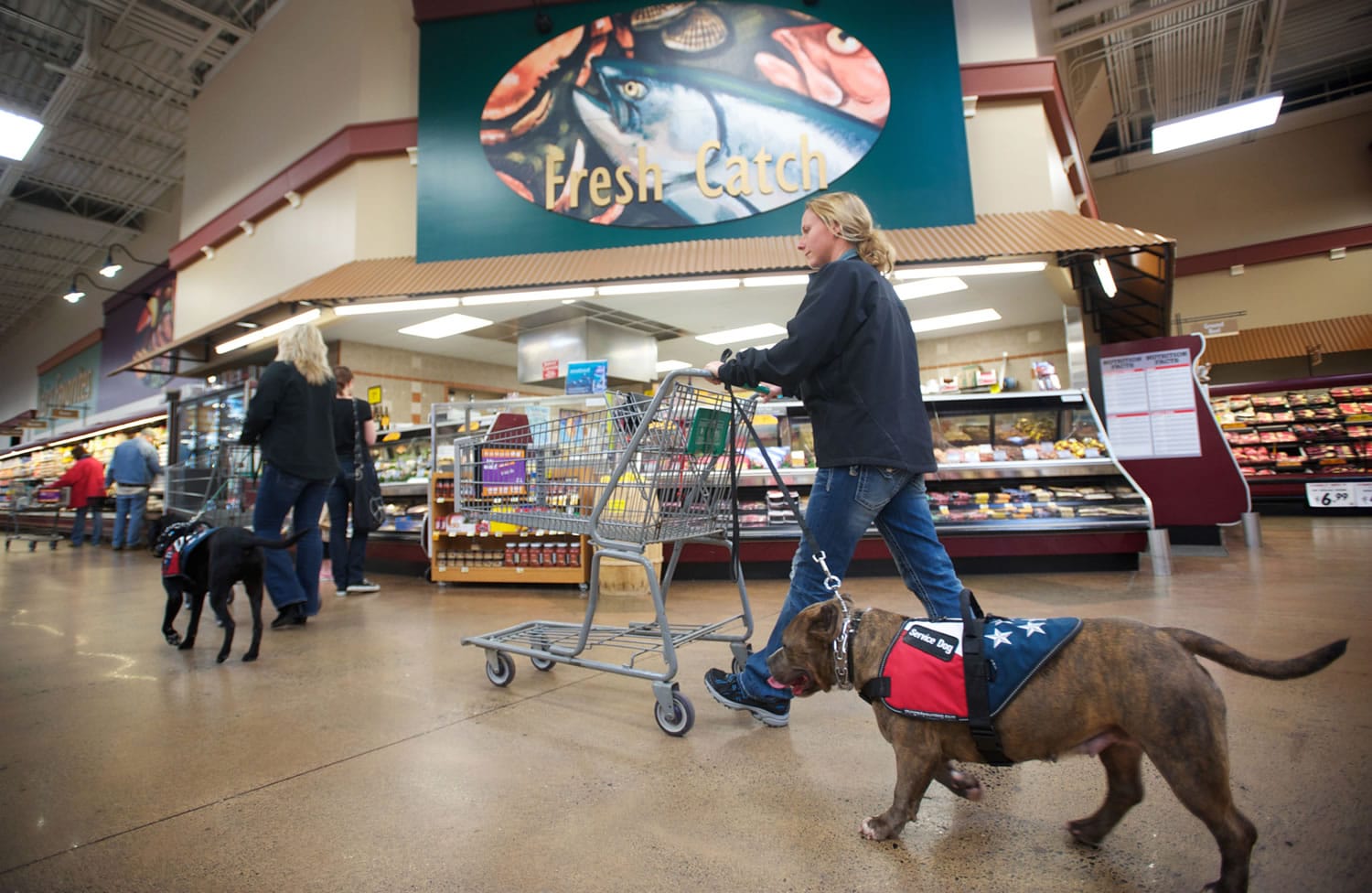BATTLE GROUND — Shannon Walker looked at Kevin Williams’ damaged spirit and his yellow Labrador retriever’s undisciplined demeanor and saw her chance. Her father had raised her to have reverence for veterans. In Williams and his dog, Sam, the dog trainer saw a way to thank a veteran for his service in a palpable way.
Walker’s recent expression of gratitude to Williams, a combat veteran with post-traumatic stress disorder, has blossomed from one act of kindness into a full-fledged mission.
Since starting the nonprofit Northwest Battle Buddies in January, Walker has provided
trained dogs free of charge for three combat veterans with PTSD and is in the process of training a dozen more. Her waiting list has the names of 14 combat veterans.



